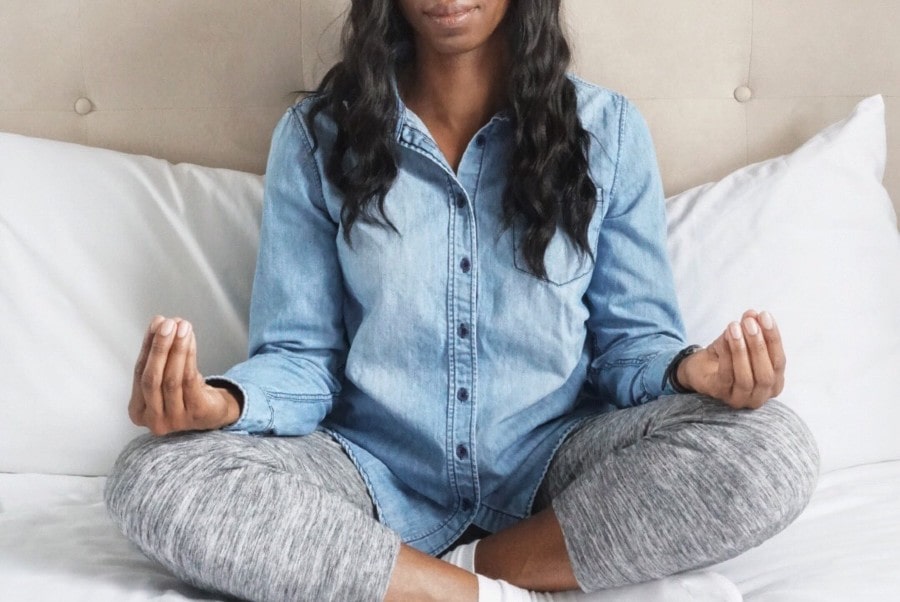It seems like most of us are getting our vitamins.
More than 68% of adults in the United States take dietary supplements, according to the Council For Responsible Nutrition. The industry has estimated sales of more than $32 billion in the United States and there are many products to choose from.
Yet it’s not all that it’s cracked up to be. A number of studies have shown that vitamins aren’t necessarily good for you, and can actually be bad for your health. And despite being located on the medicine aisle at your local store, vitamins are actually food products with regulations that haven’t changed much since the 1990s. But is it still possible to get healthier hair and body through a pill? We spoke to experts to help us navigate this world of health and beauty promises.
Multivitamins
The standard American diet doesn’t provide the recommended daily amount (RDAs) of nutrients we need to be healthy, according to the FDA. That’s why many people take a multivitamin—multivitamins increase the intake of those necessary vitamins and minerals.
“If you don’t eat a nutritious variety of foods, some dietary supplements might help you get adequate amounts of essential nutrients,” says Carol Haggans, scientific and health communications consultant with the Office of Dietary Supplements (ODS) at the National Institutes of Health. “But supplements can’t take the place of the variety of foods that are important to a healthy diet.”
Avis Graham, an assistant professor in the Department of Nutritional Sciences at Howard University, agrees. “First eat a well-balanced diet,” she says. “This consists of whole grains, fruits, vegetables—all colors, like a pack of crayons, dairy, and protein-rich foods. For a good guide in selecting the right amount and type of foods go to ChooseMyPlate.gov.”
While there’s no strong scientific evidence that suggests vitamins are a necessity, many people see them, including doctors, as an important factor in maintaining good health. Before choosing multivitamins, consult with your physician to make sure you actually need to take one.
“No one should take vitamin supplements unless a deficiency is identified through lab tests,” Graham says. “This can lead to medical problems.”
Prenatal vitamins are formulated for pregnant women who need another set of nutrients necessary to support a growing baby. Consuming too much iron can lead to digestive problems. Too much folic acid can cause a B12 deficiency, which can lead to memory loss and depression. Your body can only absorb so much; too much of these ingredients can build up to toxic levels.
Hair Vitamins
For many women who went natural with a big chop, it seemed like anyone’s guess as to how long it would take for one’s natural hair to grow back to its former hair length. That’s why there’s tons of natural hair blogs, boards, and Youtube channels aimed at providing tips and solutions. One recommendation you’ll find is taking vitamins. Some women recommend taking high doses of biotin, methylsulfonylmethane (MSM), or prenatal vitamins when you’re not pregnant.
But not so fast. “There has been very little research on MSM and hair growth,” says Haggans,
“so we don’t know what effect it might have. Prenatal vitamins typically have high amounts of certain nutrients—including iron and folic acid—compared to standard multivitamin [and] mineral supplements. In most cases, prenatal vitamins are not dangerous for women who are not pregnant, but contain levels of iron, folic acid, and sometimes other nutrients that are above the recommended amounts for these women.
“A deficiency of some nutrients [like] zinc and biotin can cause hair loss,” Haggans continues. “But this doesn’t mean that taking extra amounts of these nutrients will stimulate hair growth.”
Synthetic vs. All-Natural Vitamins
Most multivitamins are synthetic. This allows for them to last longer on the shelf and include more of the nutrients you are looking to gain. There are many arguments for not consuming synthetic vitamins, but for the most part the body doesn’t know the difference, says Haggans.
“Many synthetic vitamins and minerals work the same in the body as those found naturally in foods,” she explains.
But some people still believe that food-derived vitamins are better, which makes eating a healthy balanced diet even more valuable. The USDA Dietary guidelines tells you exactly what you need to follow a diet rich in vitamins.
And Remember…
If you do end up taking a supplement—whether prenatal or skin, hair, and nail complexes—it’s important to remember they’re still multivitamins. Be careful not to over do it.
RELATED ARTICLES
Workout Routines: 12 Easy Steps To A Healthier New Year

















